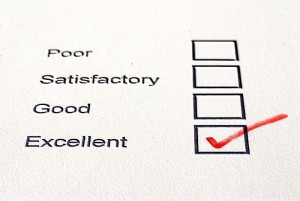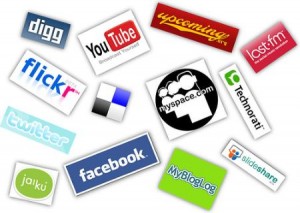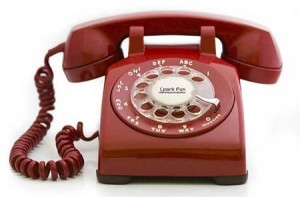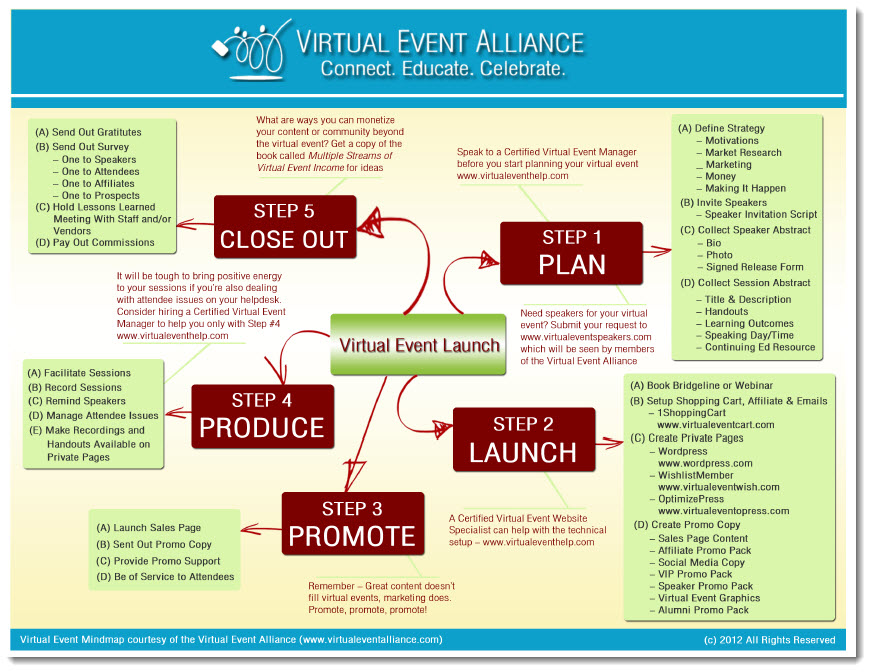 I attended 3 offline events in 4-weeks and while I was exhausted by all the travel, I was pleased with the networking opportunities and breakthroughs.
I attended 3 offline events in 4-weeks and while I was exhausted by all the travel, I was pleased with the networking opportunities and breakthroughs.
With social media, it’s easier more than ever for attendees to post their reaction to your virtual event. Since many virtual event hosts encourage attendees to post their reactions, attendees are happy to tweet, blog or podcast about their experience attending your virtual event whether it’s positive or negative.
But the reaction can be a tough pill to swallow when it contains negative reviews. I should know – this has happened to me a few times after people attended my Social Media Telesummit.
Negative reviews about your virtual event will happen, but there are a few things you can do as the virtual event host to lessen them in the social media space. Here are my tips:
Get feedback quickly
 For the 3 offline events I attended, not one sent me a feedback form. In all fairness, I was a speaker at one, a staff member at the 2nd one and an attendee at the 3rd one. So, I should’ve gotten a feedback form for the 3rd one.
For the 3 offline events I attended, not one sent me a feedback form. In all fairness, I was a speaker at one, a staff member at the 2nd one and an attendee at the 3rd one. So, I should’ve gotten a feedback form for the 3rd one.
Despite my role at these events, not getting feedback via a survey or form is a mistake. With all the tools that I and other attendees have at our finger tips, we’ll voice our disappointments and publish them just so we can get a reaction from someone.
Most with a gripe would prefer to send it privately to the virtual event team rather than air it out for public eyes to see. Not everyone feels comfortable posting their reaction on social media.
That’s why the quicker you can get a feedback form out to attendees after the virtual event is over, the better. Otherwise with time, those too shy about posting their reaction on a blog will become bold as time passes.
Some of you may say:
“Well, Leesa, the virtual event team is so busy wrapping things up after the virtual event is over, you need to give them time to put that survey together.”
To this I say hogwash. In other words, the post-event activities must be planned far in advance so you know how to close out your virtual event. You need to plan right at the beginning who on your team will send out the feedback form and by when.
Respond genuinely
If you do get negative feedback by email or find it on a blog or in a tweet, contact the attendee directly to resolve the issue. If you dig deep enough, you’ll find that their issue is easy to resolve. But what you should not do is go on the attack or read from a script.
 When I took a tour of the Zappos.com office, I was impressed that their customer service team didn’t use a script, nor was there a time limit on how long they could help a customer through an issue.
When I took a tour of the Zappos.com office, I was impressed that their customer service team didn’t use a script, nor was there a time limit on how long they could help a customer through an issue.
Of course, they had some training on how to respond to an irate customer, however, not having a script gives their customer service reps a chance to be more flexible in how they respond.
That’s where the genuine part comes in. Attendees can tell when your virtual event team has copy and pasted a response from a form letter and when they actually took time to craft a response from scratch. Aim to be genuine and help the attendee resolve their issue.
Have someone on your virtual event team monitor social media diligently
This is a must. Absolute must. You can solve alot of issues quickly and quietly if someone on your virtual event team is monitoring reactions on blogs, Twitter and Facebook during the virtual event.
 At one of the offline events I attended, the people sitting in my area during the keynote lunch couldn’t hear what was being said by the presenter. Apparently, the speakers weren’t turned on in our section of the room, so people started tweeting that they couldn’t hear. Then, they started having their own conversations which made it impossible to hear the keynote on stage.
At one of the offline events I attended, the people sitting in my area during the keynote lunch couldn’t hear what was being said by the presenter. Apparently, the speakers weren’t turned on in our section of the room, so people started tweeting that they couldn’t hear. Then, they started having their own conversations which made it impossible to hear the keynote on stage.
What was the response of the event team? They went from table to table telling us to practically shut up. The keynote speaker, hearing the chatter, told us to keep it down. Then, one of the attendees in my area stood up and shouted, “We can’t hear you over here.” Which prompted a few tables to clear as people walked out. It was getting ugly.
And get this – people were shouting about the problem, but discreetly on Twitter. And had an event staff been monitoring the Twitter feed, he or she would’ve been able to diagnose the problem, get one of the AV guys to turn on the speakers in our area of the room and solve the problem quietly.
It’s difficult for the virtual event host to monitor reactions on social media, plus facilitate the sessions. Instead, assign someone else on your team with that task so your virtual event team can be proactive about solving problems instead of being reactive.
Meet as many of the attendees as possible
Okay, this one is tricky, but very important. If attendees feel that you as the virtual event host made an effort to connect, they tend to write more pleasant reviews than those who don’t interact with attendees at all.
For the 3 offline events I attended, I had direct, personal interactions with the hosts for 2 of the events. For the one I didn’t, I had mixed feelings about that event and posted my thoughts – both positive and negative – to my blog.
I asked myself why I spent so much attention writing my reaction about 1 event compared to the other 2. Then, it hit me. I had no personal interaction with the event host at the one event that I blogged about prolifically. And not being acknowledged by the host in a personal way left me feeling as if the host was out of touch.
At a recent event I attended, I identified connections as being one of my core values. I love connecting with old friends and meeting new ones whenever I’m at an event. I often connect others with each other or find the lonely person in the room and engage them in conversation. I hate seeing people left out.
So, how does my core value of connections fit into virtual events, especially if you can’t touch or see the attendee because your event is virtual?
 Call attendees randomly after they register for my virtual event. I typically call every 3rd or 4th person who sign up for my virtual events. If I get them live, I commit to spending at least 10-minutes on the phone with that person. My goal is to find out why they signed up and what they hope the virtual event will reveal for them. If I get voicemail, I leave a message congratulating them on their decision and letting them know what 1 action they need to take.
Call attendees randomly after they register for my virtual event. I typically call every 3rd or 4th person who sign up for my virtual events. If I get them live, I commit to spending at least 10-minutes on the phone with that person. My goal is to find out why they signed up and what they hope the virtual event will reveal for them. If I get voicemail, I leave a message congratulating them on their decision and letting them know what 1 action they need to take.- During the virtual event, I acknowledge as many attendees as I can by responding to tweets and blog posts. I also make sure that attendees have a chance to interact with each other through an online forums. And I pop in every few hours to contribute my thoughts to the conversations taking place on the forums.
There will always be negative comments about your virtual event. Expect it. Each individual attending your virtual event is unique and what bugs one person won’t bug someone else. Attendees will react positively or negatively based on their learning style, goals and expectations.
However, you can lessen the amount of negative feedback about your virtual event if you focus on providing attendees with interaction, connections and acknowledgement. Implement my suggestions with your next virtual event and let me know how it works out for you.
What other tips can you provide to help lessen the number of negative reviews for your virtual event?


Ouch! I'm so sorry to hear about your experience. What a great lesson on how to solicit feedback the right way. I'd also love to avoid having a “lemon squeeze” at any of my virtual events, so I'll make a mental note to get feedback individually in a private way eg. over the phone as ElizabethPW suggests below or via an online survey.
Hi Leesa,
I definitely agree on the survey form, or calling people individually after the event. I once made the huge mistake of naively asking for constructive feedback in a live discussion from a small group (while they were all still in the room together- fatal error) after a workshop that didn't go great, and the first person's negative comments inspired more negativity from the others so that the “constructive” feedback session turned into more of what my mother would call a big “lemon squeeze,” as the negativity fed on itself and grew simply nasty. Anyway, after I got the people to leave and my initial mortification passed, I realized that I'd completely set myself up and had opened the door to that sort of experience. In short, in whatever format one seeks feedback, I'd like to add the suggestion that it's done on an individualized basis as much as possible. I'd love to hear more about your experience with online group forums.
Best,
Lily
Hi Leesa,
I definitely agree on the survey form, or calling people individually after the event. I once made the huge mistake of naively asking for constructive feedback in a live discussion from a small group (while they were all still in the room together- fatal error) after a workshop that didn't go great, and the first person's negative comments inspired more negativity from the others so that the “constructive” feedback session turned into more of what my mother would call a big “lemon squeeze,” as the negativity fed on itself and grew simply nasty. Anyway, after I got the people to leave and my initial mortification passed, I realized that I'd completely set myself up and had opened the door to that sort of experience. In short, in whatever format one seeks feedback, I'd like to add the suggestion that it's done on an individualized basis as much as possible. I'd love to hear more about your experience with online group forums.
Best,
Lily
Ouch! I'm so sorry to hear about your experience. What a great lesson on how to solicit feedback the right way. I'd also love to avoid having a “lemon squeeze” at any of my virtual events, so I'll make a mental note to get feedback individually in a private way eg. over the phone as ElizabethPW suggests below or via an online survey.
It really comes back to people skills, doesn't it – like you have noted before in other articles Leesa, whether we are communicating face to face or online, it is real people we are communicating with. I find that as well as a performer, the success of my attempts to connect with the audience is a direct indicator to the overall success of my show and, in the long run, my product.
Thanks Leesa, that was interesting and useful information.